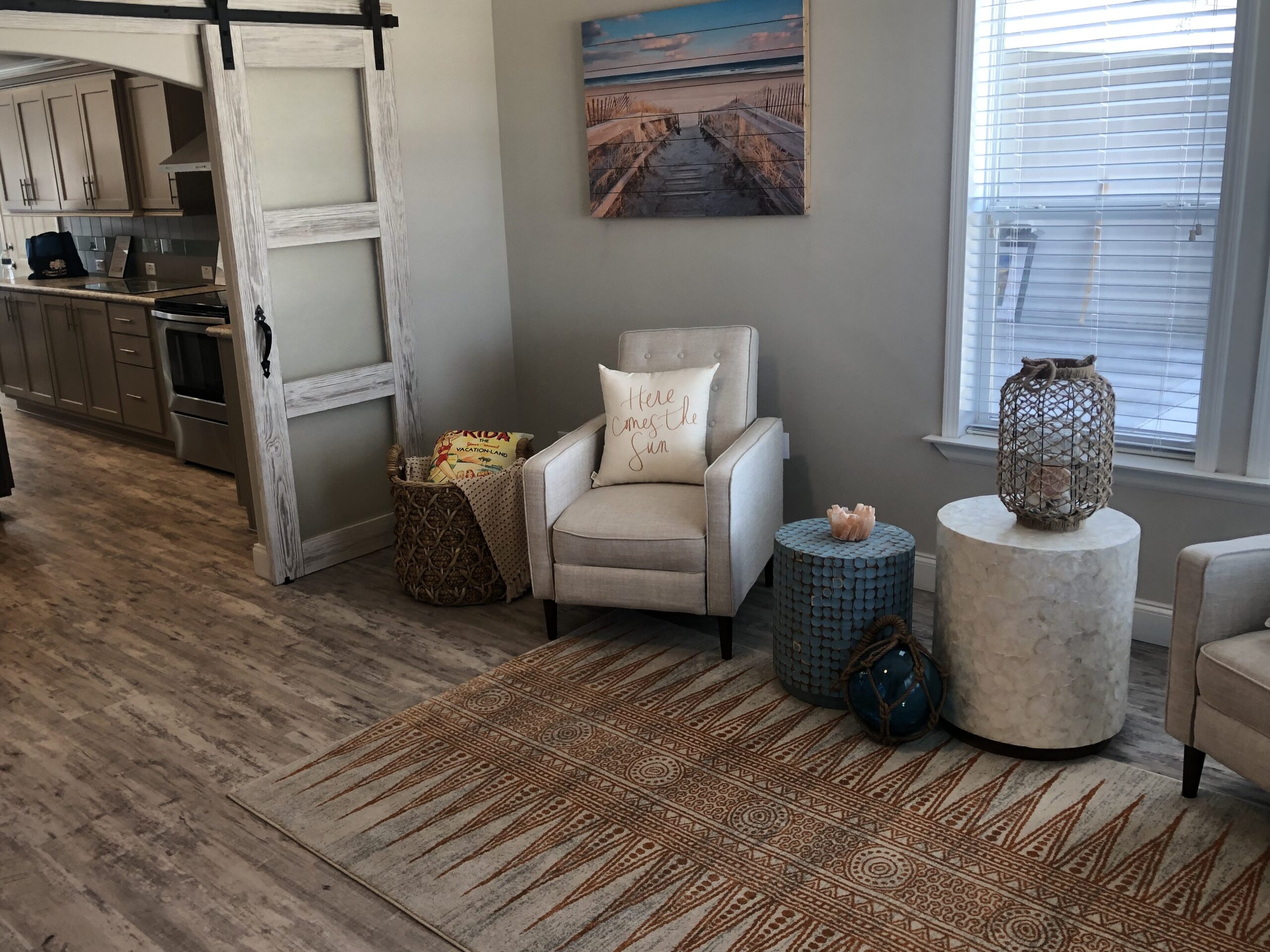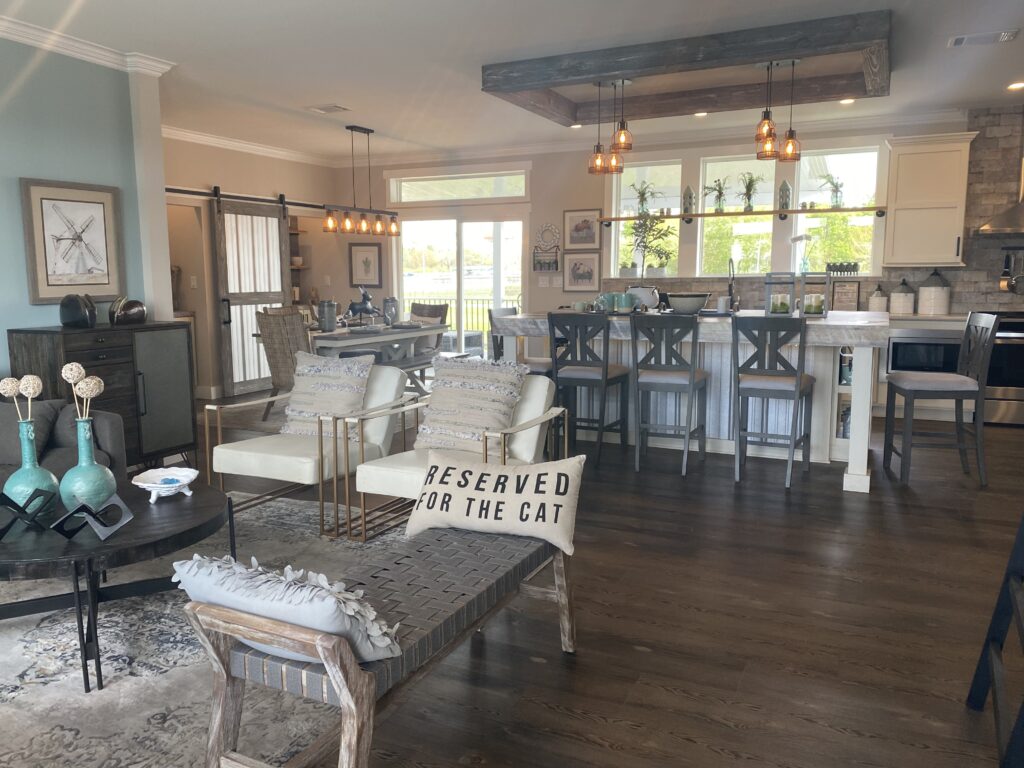The Importance of Marriage Lines in Mobile Homes
If you’ve kept up with the MHVillager in recent months, or have already done research into manufactured homes, then you might know that some mobile homes come in multiple sections. These are referred to as double-wide, triple-wide, quadruple-wide, or multi-section homes, depending on the number of sections it has.
If you live in a multi-section mobile home, or are considering moving into one, then you should be aware of one very important aspect of how these home sections are joined together. That is, you should understand the marriage line.
What Is A Marriage Line?
In a mobile home that has two or more sections, the marriage line is the area where the separate sections are connected to create one multi-section manufactured home. If you have a mobile home with three or more sections, you’ll have multiple marriage lines that join each section.
The term comes from the fact that each section is married, or joined together in a seam that’s sealed to keep the outside air out.
You may occasionally see a marriage line referred to as a marriage joint, marriage boundary, mating line, or mating joint. Regardless of what you call it, it’s helpful to know where it’s located in your home.
Most likely, you’ll have a wall immediately adjacent to the marriage line. This is referred to as a marriage wall. The marriage wall is actually two walls put together to create a thicker, interior wall.
You’ll have a marriage wall for each marriage line. So, if your triple-wide manufactured home has two marriage lines, you’ll have two marriage walls. The marriage wall is a structural load bearing wall – meaning you shouldn’t do any work on it by yourself.
If you’re buying a pre-owned mobile home with two or more sections, you may want to have the marriage line inspected closely. A proper mobile home inspection will place a lot of focus on making sure your marriage line is properly sealed.
If you don’t immediately know where the marriage line is in your mobile home, it might be hidden. It may be under a layer of caulk, foam, or other insulating material. This means that you may need to take out any of this material before performing maintenance on or near your marriage line (more on whether you should do that below).
Why Are Marriage Lines Important?
Even if you never need to have maintenance performed on your mobile home marriage line, it’s still very important to know what they are, how they’re handled, and their durability limits.

Like we mentioned earlier, your marriage line plays a vital role in making sure no outside air gets into your mobile home.
Mobile homes in 2022 are incredibly energy efficient, and the marriage line is a big part of this. The marriage line is effectively an airtight seal that keeps your cold air during the summertime from escaping the home. In other words, without an airtight marriage line seal, temperature control in your home becomes impossible.
It’s not just about temperature control, however. Marriage joints are also incredibly important for maintaining air quality inside your home, too.
You wouldn’t want outside dust, pollen, or other substances getting into your home through a faulty marriage joint. This is why your mobile home marriage joints are incredibly important for maintaining air barrier effectiveness.
Your marriage line also helps to keep your mobile home level. If your new multi-section manufactured home is placed on private land, it may have been leveled prior to your home being sited.
If your home’s sections aren’t level, you may see the seal break around your marriage line.
Can A Marriage Line Be Damaged?
Marriage line seals are built with high quality and endurance in mind. Multi-section mobile homes can go for decades with very little or no damage to the marriage line.
However, in some instances, there are factors that can lead to various types of marriage line damage.
For example, perhaps the land around your home has shifted, resulting in cracking or chipping in the walls where the line sits.
Or perhaps the seal has come loose, letting in a draft and reducing indoor air quality.
In these cases, you should look to have your marriage line repaired or treated to prevent further damage or air leakage.
An unleveled home may also result in damage to your marriage joints. This can show in the form of cracked or broken insulation, or even cracks in your walls.
If you start to see cracks in your walls from a faulty marriage line, contact a professional immediately.
Can A Marriage Line Be Repaired?
Yes – but there’s a catch.
If you’re performing minor maintenance, such as re-sealing a small visible crack in your marriage line’s insulation, you may be able to perform the work yourself.
This can involve taking a can of spray-foam insulation or another appropriate sealant and filling in the gaps.
In most other circumstances, however, you’ll want to hire a professional to handle your major marriage line maintenance in your mobile home.
This is because of the stakes involved when performing large maintenance projects on or near where your home’s sections are joined.

If you try to handle a major marriage line project yourself, you risk doing serious damage to your mobile home. This especially goes for any work involving your marriage wall, as those interior walls are load-bearing.
Your marriage line may become separated and you may even damage the foundation of your home if you’re not careful.
Thankfully, many mobile home contractors can properly fix any major damage to your marriage line. This may involve some work re-setting the home so that it’s level, as well as re-insulating the marriage line to ensure a proper seal.
However, it’s important to remember that marriage line damage might not be all that common compared to normal yearly maintenance you might do for your home, depending on where you live and how level your land is.
That said, it’s still important to visually inspect your marriage line from time to time to catch minor problems before they become major issues down the road.
If you’re looking to buy a double-wide manufactured home for yourself, you’re in luck – we can help with that too.






